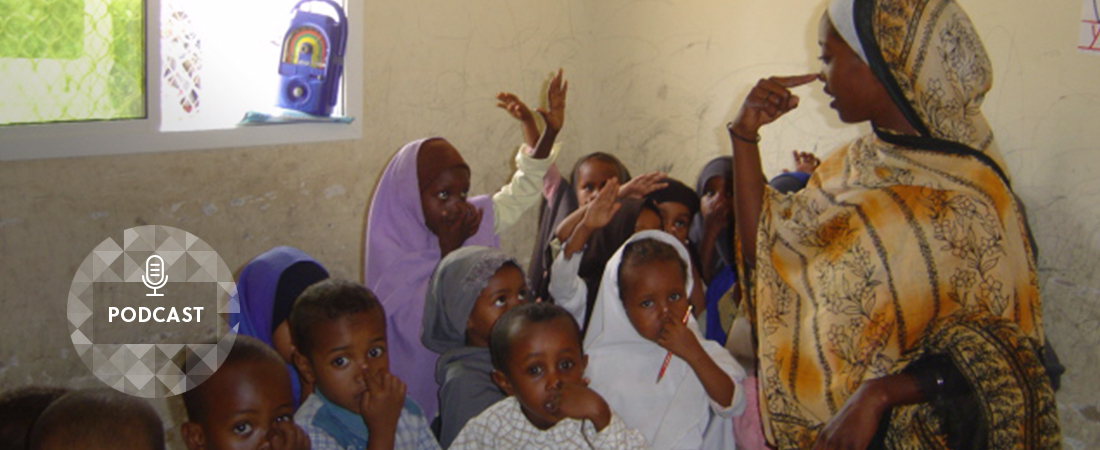Online Learning May Not Be for Everyone. Radio Is.

Listen in as our experts discuss a wide range of current topics. Check out all of our podcasts.
For decades, EDC has been using interactive audio instruction (IAI) to deliver education to remote and impoverished communities around the world. Now, as most schools remain closed to combat the spread of COVID-19, many countries are hoping to use IAI to deliver high-quality education to children while they are at home.
EDC’s Kit Yasin and Carrie Lewis have extensive experience developing, implementing, and assessing IAI programs. In this podcast, they discuss why IAI is so well suited for our current reality, and how ministries of education can begin implementing these educational programs.
On the educational challenges IAI can address
Yasin: The pandemic has very much highlighted the digital divide that exists in the world. And countries, understandably, quickly ran to producing whatever they could produce, or looked for whatever they could find to deliver online. [But then they realized] that there is a large percentage of the population in many countries who don’t have access to the Internet . . . So many are turning to radio because it is something that is more widely available. It’s starting to fill that gap.
On how radio can enable learning across the entire community
Lewis: I remember . . . in Zambia, there was this shadow audience of taxi drivers and people on the street who had radios. They were listening to the programs, and they were then able to go home and talk to their kids about “what did you learn,” knowing what happened part of the day. So parents are really eager to participate in their children’s learning if they are given the resources.
On working with countries to begin delivering IAI
Yasin: [Ministries of education] can identify whether or not there are existing programs that they could tap into, not only in their own countries, but in neighboring countries. . . . And so whereas in the past, a country might have been a little bit hesitant to use programs that were developed for another country, at this point, they’re a little more open to it.

